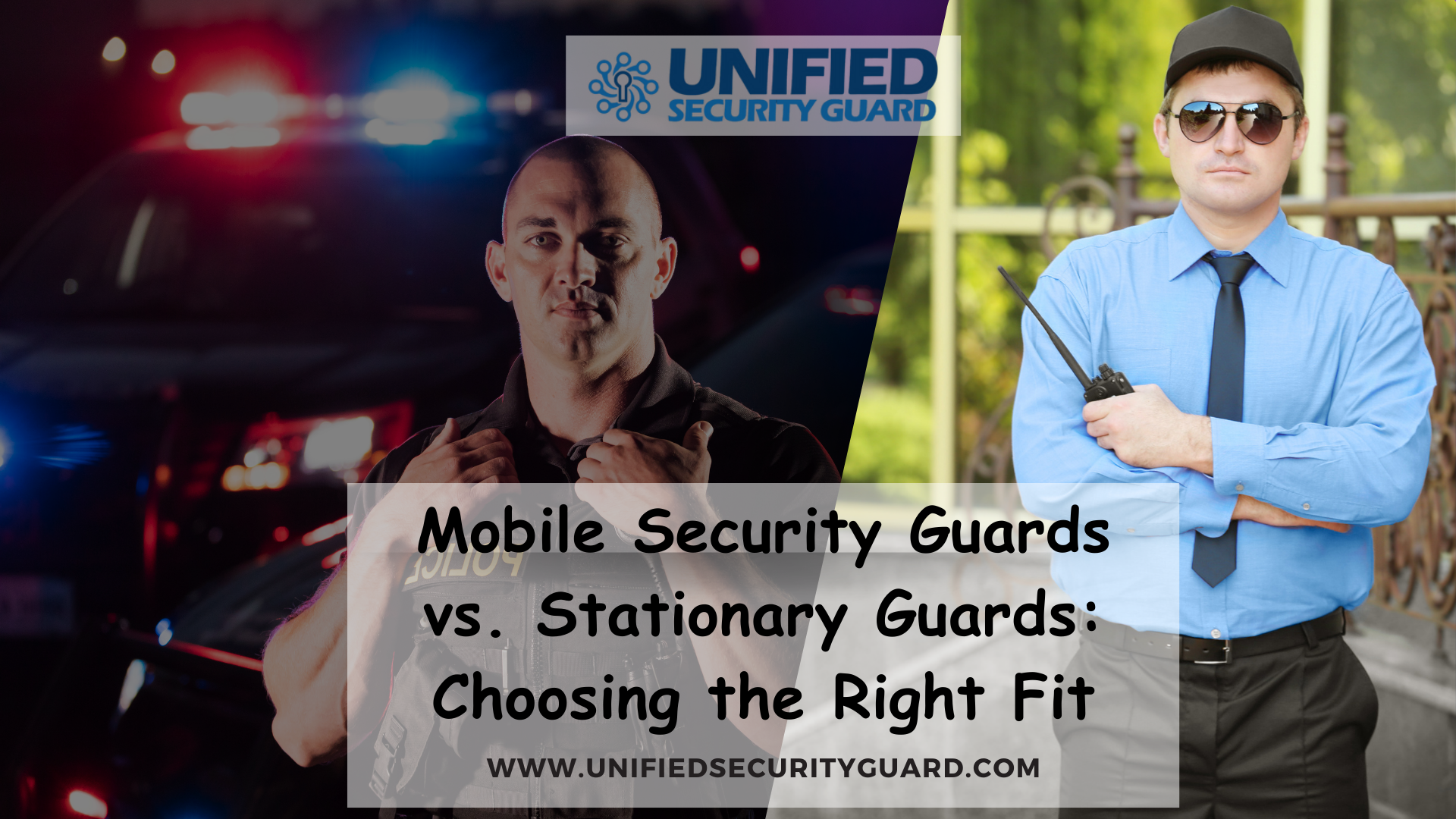When it comes to securing your property, choosing between
mobile and stationary security guards is crucial. Both offer distinct
advantages, and the best option depends on your property's unique needs. Let’s
explore the benefits of each and factors to consider when making your decision.
Mobile Security Guards
Key Benefits:
Flexibility: Mobile guards
patrol larger areas and can adapt to evolving situations, making them ideal for
dynamic environments.
Enhanced Deterrence: The
unpredictable nature of a moving presence often deters criminals more
effectively than a static one.
Cost-Effectiveness: Mobile
patrols can cover more ground with fewer guards, offering a budget-friendly
solution.
Ideal for:
Large properties with
multiple access points.
High-crime areas or
locations with fluctuating security needs.
Properties requiring frequent
patrols or regular inspections, such as parking lots, construction sites,
or industrial complexes.
Stationary Guards
Key Benefits:
High Visibility: A
stationary guard provides a fixed, visible presence that helps deter criminal
activity and enhances the feeling of safety.
Close Monitoring:
Stationary guards focus on specific areas or entry points, providing better
control and quicker response within their assigned zone.
Personal Interaction: Their
fixed position allows them to interact directly with visitors, employees, or
clients, addressing issues in real-time.
Ideal for:
Smaller properties with
limited access points.
Areas with consistent security
needs, such as entrances, lobbies, or high-traffic zones.
Properties requiring close
monitoring, like retail stores, banks, or reception areas.
Factors to Consider
1. Property Size and Layout
Larger properties may benefit from the extensive coverage
offered by mobile security guards, while smaller locations might only need the
focused attention of stationary guards.
2. Security Needs
Assess your security risks. If you need consistent
surveillance at a specific point, stationary guards are ideal. For properties
that require broader coverage or more dynamic monitoring, mobile guards are a
better fit.
3. Budget
Consider the overall cost, including guard salaries,
equipment, and any necessary training. Mobile patrols can be more
cost-effective due to their ability to cover more ground with fewer guards.
4. Desired Level of Visibility
If a visible deterrent is a priority, stationary guards
offer a fixed and noticeable presence. However, mobile guards can increase
visibility across wider areas.
5. Flexibility
If your security needs are constantly changing, such as
varying access points or fluctuating risks, mobile guards provide the necessary
flexibility to respond to different situations.
Conclusion
Both mobile and stationary security guards are valuable
assets in protecting your property. The right choice depends on your property's
size, security requirements, budget, and the level of visibility you desire. By
carefully considering these factors, you can ensure that your security strategy
meets your needs and offers peace of mind.
For more information on security services, contact us at
info@unifiedsecurityguard.com.
FAQs
Q: Are mobile guards more cost-effective than stationary
guards?
A: Yes, mobile guards can often cover larger areas with fewer personnel, making
them a more affordable option for expansive properties.
Q: Which guard type provides better emergency response?
A: Mobile guards typically respond quicker to incidents across larger
properties, while stationary guards excel in immediate on-site responses.
Q: Can I combine both mobile and stationary guards for my
property?
A: Absolutely! Many businesses use a combination of both to maximize coverage
and control, tailoring their security strategy to fit different areas of the
property.











